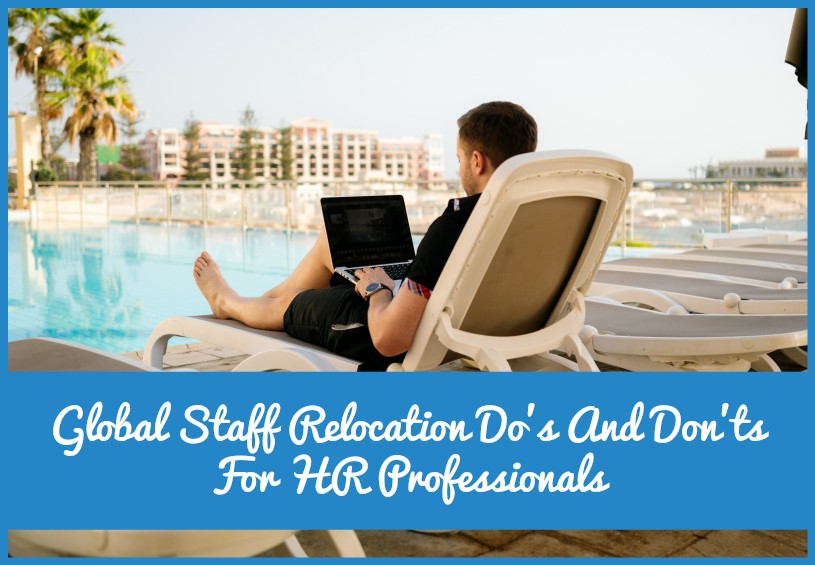
Global Staff Relocation Do’s And Don’ts For HR Professionals
Managing the relocation process for shifting staff across international borders to work in new locations is something that can pose various challenges to HR professionals.
Knowing the pitfalls to avoid and the correct steps to take will make this much easier, so here are some tips to take onboard that could prove very useful if this is one of the responsibilities of your role.
Do get outside assistance
If you are not familiar with the complications that can arise when helping staff uproot their lives and move to a new country to work for your organisation, you should consider global relocation services offered by third party operators.
These services will provide you with a lot of the support you need to make sure everything goes smoothly and can also take charge of some of the more complex aspects, meaning that you can get on with other things safe in the knowledge that the relocation is progressing efficiently.
Of course if you are the one who is thinking of relocating to pursue your career elsewhere, working with a relocation services provider can also be an appealing prospect, for all of the reasons mentioned above.
Don’t overlook the reasons for relocation
Before you even get the ball rolling on global relocation, you need to make sure that the person who is being transplanted from one country to another has a legitimate, positive motivation for making this change.
And once again, this is relevant both for HR professionals who have a say in approving employee relocation, as well as those who are thinking about taking advantage of this opportunity themselves.
Having reassuring reasons for seeking relocation is important because you do not want to jump through all of the hoops that are associated with this process, only to find that the end result does not live up to expectations.
Sensible explanations which motivate a move include a desire to be closer to friends and family, a preference for a shorter commute and a need for a change of lifestyle.
If the individual being relocated is solely motivated by the job, then there is a higher chance that they will ultimately be dissatisfied with the move, since they will be ignoring every other aspect that will impact their experience following relocation.
Do assess domestic situations
Single people with no dependents are easier to relocate than those with families, but that does not mean they should necessarily be given preferential treatment in the case that the right role becomes available overseas.
When shifting an entire family unit to a new country, it is necessary to make sure that aspects like schooling for children and employment for partners and spouses are taken into account as part of this process.
It is also essential to make sure that every member of the family is committed to the move, or at least willing to give it a shot. If there is any significant conflict or the likelihood of serious disruption on the table, going ahead will be less logical.
Don’t ignore costs
Moving to another part of the country you already live in is an expensive process, and this is even more of an obstacle when relocating overseas. From living costs and work visas to exchange rates and the sale of property, there are many unforeseen costs that have to be factored in.
For those working in HR, this may mean taking a calculated approach to approving any funding which is made available to employees who are being relocated by your organisation. Likewise if you are hoping to move, making sure that you have enough savings to cover any costs upfront and also keep you afloat for the first few months after the move is worthwhile.
While relocation trends rise and fall regularly, it pays to be meticulous in your preparation and realistic in your expectations, especially if you are an HR professional.
© New To HR


